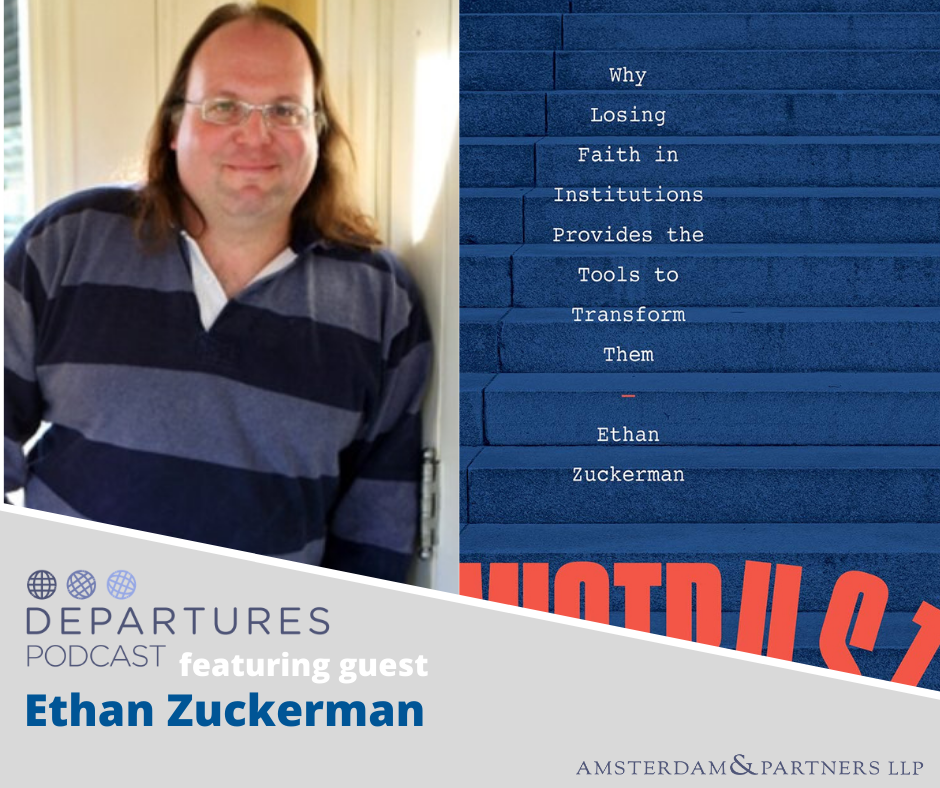Departures Podcast with Ethan Zuckerman

At some point, people stopped believing that electing the right leaders and passing the right laws was the most effective way to achieve social change. Since at least the 1970s, people have been rapidly losing faith in government, democracy, big banks, big corporations, organized religion, and other institutions which were thought to help give order and shape norms for society.
In Ethan Zuckerman’s new book, “Mistrust: Why Losing Faith in Institutions Provides the Tools to Transform Them,” these questions are explored in great depth while also seeking to illuminate the available solutions for citizens to regain their social capital.
There are four ways that we regulate our societies, Zuckerman says in the podcast interview. We make laws, which say you can’t do this or that. We use markets to make bad behavior expensive, like taxing cigarettes. We use social norms – if you engage in prohibited conduct, we will shun you. And lastly, we have code, we use technology to impose normative values, making it more difficult to do bad things.
“What I try to do in Mistrust is turn that inside out,” Zuckerman says. “And I basically say each of those four regulatory levers, each of those ways we regulate society, those are tools for social change.”











